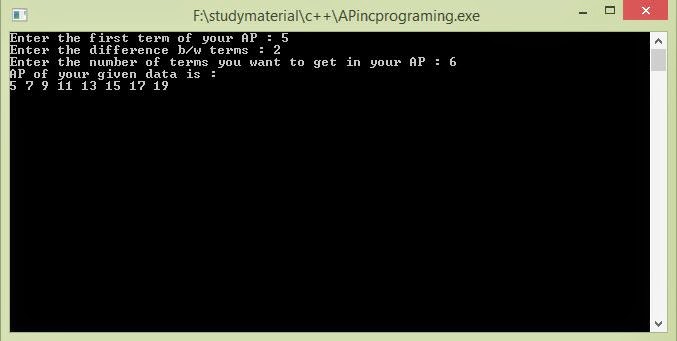Arithmetic Progression in C
An arithmetic progression is a sequence of numbers such that the difference of any two successive members of the sequence is a constant.
For example, the sequence 1, 2, 3, 4, ... is is an arithmetic progression with common difference 1.
Second example: the sequence 3, 5, 7, 9, 11,... is an arithmetic progression
with common difference 2.
Third example: the sequence 20, 10, 0, -10, -20, -30, ... is an arithmetic progression
with common difference -10.
with common difference 2.
Third example: the sequence 20, 10, 0, -10, -20, -30, ... is an arithmetic progression
with common difference -10.
****************************Program*******************************
#include<stdio.h> #include<conio.h> main() { int a,n,d,t; printf("Enter the first term of your AP : "); scanf("%d",&a); printf("Enter the difference b/w terms : "); scanf("%d",&d); printf("Enter the number of terms you want to get in your AP : "); scanf("%d",&n); printf("AP of your given data is :\n%d ",a); while(n>=0) { t=a+d; printf("%d ",t); a=t; n--; } getch(); }
****************************Output********************************
 |
| screenshot for output of AP in C program |




No comments